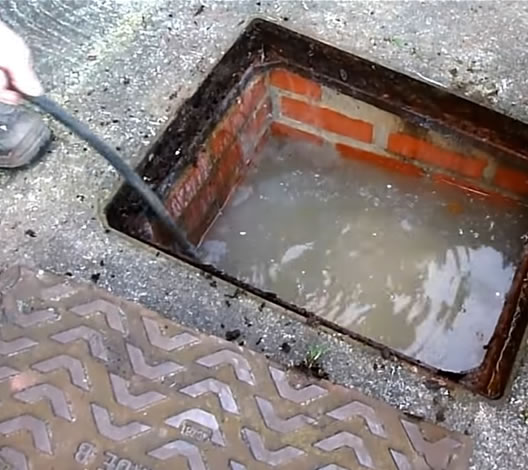How to Deal with a Blocked Drain Prior to Contacting Professional Assistance
How to Deal with a Blocked Drain Prior to Contacting Professional Assistance
Blog Article
Any individual has got their own rationale involving How to handle a clogged drain in your home.

Introduction
Taking care of an obstructed drainpipe can be a frustrating experience, interrupting daily activities and possibly creating damage to your property. However, before reaching out to pipes professionals, there are actions you can take to attend to the issue yourself. In this guide, we'll explore do it yourself remedies and safety nets to deal with a blocked drain effectively.
Identifying the Issue
The initial step in attending to a blocked drain is identifying the signs. Slow-moving drain, gurgling sounds, foul odors rising from drains, or water support up are common signs of an obstructed drainpipe. Identifying these indications early can help stop further issues.
Picking the Right Pipes Solution
When picking a plumbing solution, take into consideration factors such as experience, licensing, and customer reviews. Select a trustworthy plumber with a track record of high quality craftsmanship and clear prices practices.
Cost Considerations
The price of expert drainpipe cleaning company can differ depending upon the extent of the blockage and the plumbing technician's prices. Demand quotes from multiple companies and inquire about any kind of surcharges to guarantee transparency and avoid shocks.
Safety and security Measures
When attempting DIY drainpipe cleansing, prioritize security. Put on safety handwear covers and glasses to avoid contact with harmful chemicals or bacteria. Never ever mix different drain cleansing products, as this can produce dangerous fumes.
Case Researches
Real-life instances show the efficiency of DIY solutions and the value of prompt expert treatment in solving drainpipe obstructions.
Typical Sources Of Blocked Drainpipes
Comprehending the factors that contribute to drain pipes obstructions is vital for effective resolution. Usual wrongdoers include hair, soap residue, oil, food debris, and foreign objects like hygienic products or paper towels. Tree origins getting into below ground pipelines can also trigger significant obstructions.
DIY Solutions
For small clogs, numerous DIY services can be effective. Putting boiling thin down the drain can help liquify oil and debris. Sodium bicarbonate and vinegar or a mix of salt and cooking soda can act as natural cleaners. Making use of a bettor or plumbing serpent to displace blockages is another choice.
Devices and Equipment
Having the right tools on hand can make DIY drain cleaning up extra efficient. A bettor is a functional device for getting rid of clogs in sinks, bathrooms, and showers. A plumbing serpent or auger can get to much deeper blockages, while drain cleaning chemicals can be made use of cautiously for persistent clogs.
Preventive Measures
To avoid future obstructions, adopting preventive measures is essential. Install drainpipe guards or strainers to capture hair and particles before they get in the pipes. Routinely flush drains with hot water to dissolve grease buildup, and prevent disposing of oil or solid waste away.
When to Call a Specialist
While do it yourself options can resolve small blockages, certain indicators show the need for expert help. Persistent clogs, foul odors in spite of cleaning up initiatives, or multiple drains backing up simultaneously are red flags that warrant experienced intervention.
Final thought
By complying with the pointers laid out in this guide, you can properly tackle obstructed drains and prevent future plumbing concerns. Whether choosing do it yourself options or looking for expert help, punctual action is key to maintaining a healthy and balanced plumbing system and maintaining the integrity of your home.
HOW DO PLUMBERS AND DRAINAGE EXPERTS CLEAR BLOCKED DRAINS?
Most of us have dealt with a backed up drain at some point in our lives! Whether it’s in our home or at our business, when the toilet begins to overflow or the sink doesn’t drain properly, we ultimately seek help from professionals to clear wastewater lines and get things flowing again.
Sure, you can attempt every possible drain hack in the hopes that your line clears but, often, it’ll require more than just pouring something down the drain. Keep in mind too, that pouring acid-based liquid cleaners down your drain can result in even more problems. If unable to clear – and pass through – the clog, it’ll sit in the line and begin to eat away at the pipe. Calling a plumber or professional to clear your drain might be your last resort but it’s the proven result. So, what do they do, and what type of equipment do they use, to get rid of a blocked drain line?
How Do Plumbers And Drainage Experts Clear Blocked Drains?
To better understand exactly where the problem is located, experts will typically start with an assessment and a video sewer inspection. Using non-invasive equipment that enters and exits through the pipe, these cameras offer a look inside the pipe and can spot anything from buildup, to forming clogs, to tree roots to small holes that could be a future problem – in real-time. It can see up to 150 feet of even the hard-to-reach places of the line, so there’s nowhere to hide.
https://www.zoomdrain.com/blog/2023/january/how-do-plumbers-and-drainage-experts-clear-block/

We were made aware of that editorial about How to handle a clogged drain in your home through an associate on a different web address. Appreciated our article? Please quickly share it. Let other people check it out. Thank you for your time spent reading it.
Browse Website Report this page